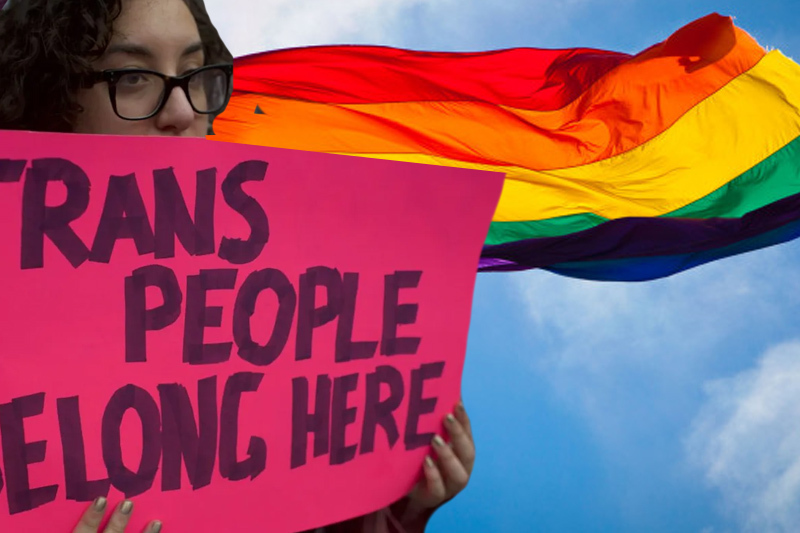

why you should never refer to transgender women as shemale
When discussing transgender women, it’s important to use language that is respectful and accurate. One derogatory term that is unfortunately still used about transgender women is “shemale.”
In this article, we will explore the reasons why this term is offensive and should never be used. By understanding the history and impact of this term, we can work together to create a more inclusive and respectful society for all.
The term “shemale” originated in the sex industry and was meant to describe pre-operative transgender women, particularly those working in the adult entertainment industry. This slur refers explicitly to transgender women who have male genitals and female secondary sex characteristics, such as breasts from breast enlargement surgery or hormone therapy.
Despite the offensive nature of the term, it has unfortunately continued to be used in various contexts. In recent years, there have been instances of professors, television shows, and even mainstream news outlets using the term, which only serves to perpetuate its harmful effects on the transgender community.
In 2017, a sociology professor named David Sorbello was called out for making his students play a game called “female or shemale?” during a class on gender, sexuality, and sexual identity at the State University of New York at Geneseo. The quiz featured headshots of cisgender women next to transgender women, asking participants to determine which was which.
Another example is the popular reality show RuPaul’s Drag Race, which axed its catchphrase “you’ve got she-mail” in 2015 following controversy over its use of transgender slurs. In 2014, the show faced backlash for a segment in which contestants were asked to guess from a photo whether someone was a ‘female or she-male’. The company behind the series, Logo TV, later pulled the segment from all future broadcasts.
The transgender community widely regards the term “shemale” as degrading because it denies the gender identity of transgender women. By using this term, it implies that transgender women are not “real” women and reinforces harmful stereotypes.
Natacha Kennedy, an activist and transgender woman, states: “I don’t know any trans woman who uses this term to describe herself, every trans woman I know describes herself as a woman. This is important because one of the few things all trans people have in common is the way we have had our identities coercively assigned… from birth.” Kennedy adds that using the term “shemale” is an attempt to force another identity descriptor onto transgender people, which can be seen as abusive and disrespectful.
Using slurs like “shemale” contributes to the marginalization and mistreatment of transgender people. Bex Stinson, head of trans inclusion at Stonewall, explains: “Language is important and it’s especially important when describing or referencing someone’s identity. The term ‘shemale’ is often used in a derogatory way and is widely condemned by the trans community as highly offensive.”
Lui Asquith, the vice-chair of Amnesty International UK’s LGBTI Network, adds that slurs like “shemale” have historically been used to marginalize, exclude, and dominate certain groups of people to maintain power. Asquith argues that transphobic words like “shemale” can even constitute a hate crime, stating: “This term is both outdated – although it has never been morally in date – and abusive, and the use of such language could constitute a hate incident; namely verbal or online abuse.”
The sex industry has played a significant role in the continued usage of the term “shemale.” It has been used as a punchline in pornographic videos and is often associated with other offensive terms like “tranny.”
Daniela Petruzalek, an activist on transgender issues, explains: “The term shemale is a term coined by the sexual industry to profit on the social vulnerability of pre-op transgender women. The problem arises from the fact that transgender people are often disowned by their families and friends.” Petruzalek argues that the word “shemale” is used to brand transgender people as “lower-class citizens,” which further reinforces harmful stereotypes and stigmatizes transgender individuals.
Given the offense and harm caused by the term “shemale,” it’s crucial to challenge those who use it and to educate them on its negative impact. As Lui Asquith emphasizes: “We all should be taking responsibility, not only for the language we are using but also to ensure such slurs are not tolerated. We must stand against these transphobic labels because to allow them to exist is to allow for the continuance of prejudice, discrimination, and ultimately, the violation of human rights.”
To create a more inclusive and respectful environment for transgender individuals, it’s important to use language that is respectful and fueled by dignity. Asquith suggests: “Language about trans people should be respectful, fueled with dignity, and it should be carved out by those who are represented by such language.
“By recognizing the impact of our language and choosing not to use offensive terms like “shemale,” we can help to promote a more inclusive society for all. If you currently use the term, stopping is a good first step; challenging others who use it is the second. By working together to create a more respectful and inclusive environment, we can help to advance the cause of transgender equality and ensure that all individuals are treated with the respect they deserve.
At the 2025 Great Place To Work Summit in Las Vegas, Marriott's CEO Anthony Capuano showed a powerful moment that…
A new report from Save the Children and Plan International, provides an alarming description of the experiences migrant children have…
In the move to deepen cooperation between North Korea and Russia, Kim Jong Un has sent a large number of…
As per the US Department of Agriculture briefing reviewed by Reuters with congressional staff, more than 15,000 USDA employees have…
In a closed-door session at the Milken Institute Global Conference, Elon Musk, who is now the Senior Advisor to the…
The US Department of Labor experiences its worst staff shortage in history because it lost twenty percent of its employees…
This website uses cookies.
Read More